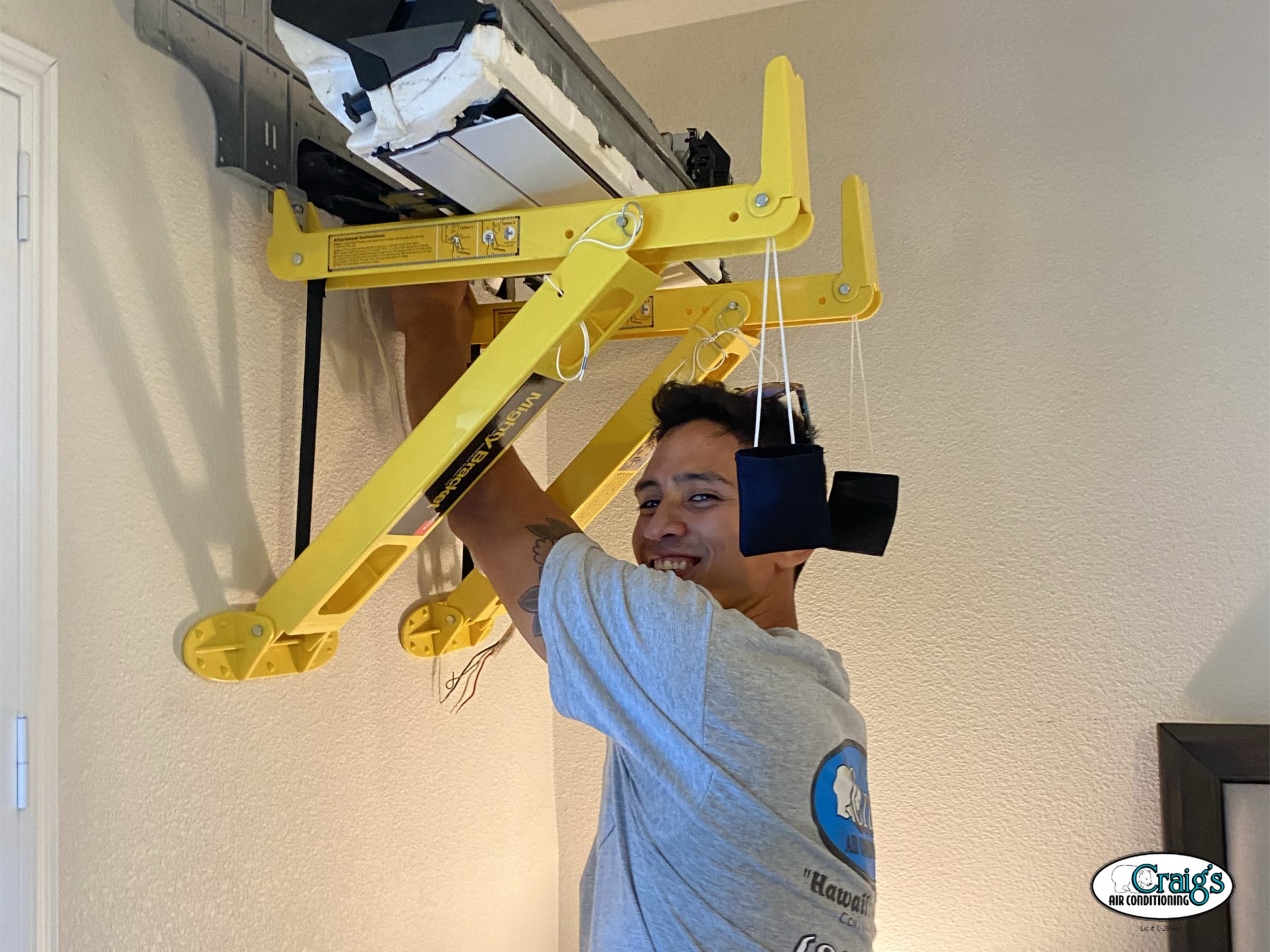How Long Do Air Conditioners Last In Hawaii
Living in Hawaii benefits from stunning scenery, a relaxed lifestyle, and beautiful weather year-round. However, the tropical climate also means high humidity and temperatures that often require air conditioning systems to maintain indoor comfort.
If you're a homeowner or property manager in Hawaii, understanding how long air conditioners last in this unique environment can help you plan for maintenance and replacements more effectively.
Factors Influencing Air Conditioner Lifespan in Hawaii
Humidity and Salt Air
The tropical environment in Hawaii presents unique challenges for air conditioning systems. High humidity levels can cause moisture to accumulate within the system, leading to rust and corrosion. Additionally, the salty air from the ocean can accelerate the wear and tear on AC components, especially if you live close to the coast.
Usage Frequency
Due to the consistently warm climate, air conditioners in Hawaii tend to run more frequently than those in cooler regions. This constant use can reduce the lifespan of the system as components are subjected to continuous wear and tear.
Quality of Installation
A professionally installed air conditioner can perform better and last longer than one that was improperly installed. Ensuring that your system is set up correctly by experienced technicians can prevent issues that might otherwise reduce its lifespan.
Maintenance Practices
Regular maintenance is crucial for extending the life of your air conditioning system. This includes cleaning or replacing filters, checking refrigerant levels, inspecting and cleaning coils, and ensuring all parts are functioning correctly. In Hawaii, where environmental factors can accelerate deterioration, diligent maintenance is even more important.
Average Lifespan of Air Conditioners in Hawaii
Understanding the lifespan of air conditioning systems in Hawaii’s tropical climate helps plan maintenance and replacements. Note that these are estimates and can vary based on installation and maintenance.
Portable Air Conditioners
Portable air conditioners are usually the most affordable option, with a lifespan of about 5-10 years. They are compact but often have less durable parts, such as fans, that can become less efficient over time. Limited access for cleaning and maintenance can lead to excessive build-up and reduce their lifespan.
Factors Influencing Lifespan:
Part Quality: Cheaper, more fragile components.
Maintenance Access: Limited cleaning opportunities.
Window Air Conditioners
Quality window units typically last 10-15 years. They generally have more durable parts than portable units and offer better longevity. However, because they are often exposed to outdoor elements and direct sunlight, they may work harder and experience increased wear.
Factors Influencing Lifespan:
Exposure: Direct sunlight and outdoor conditions.
Installation: Proper sealing and shading can improve durability.
Central Air Conditioners
Central air conditioners usually last 10-20 years. They have fewer parts compared to mini-splits but rely heavily on ducts, which can be vulnerable and challenging to maintain. Proper duct cleaning and maintenance are essential to avoid issues and extend their lifespan.
Factors Influencing Lifespan:
Duct Maintenance: Regular cleaning and inspection.
System Size: Correct sizing and installation impact efficiency.
Mini-Split Systems
Mini-split systems are known for their durability, with a lifespan of 12-20+ years. They have high-quality, durable parts and advanced technology. However, their complexity means they require regular maintenance to address potential issues with various components.
Factors Influencing Lifespan:
Component Quality: Higher-grade materials and technology.
Maintenance: Regular servicing of both indoor and outdoor units.
Estimated Lifespan by Air Conditioner Type
| Air Conditioner Type | Estimated Lifespan in Hawaii |
|---|---|
| Portable Air Conditioner | 5-10 years |
| Window Air Conditioner | 5-15 years |
| Central Air Conditioner | 10-20 years |
| Mini-Split System | 12-20+ years |
Note: These are estimated lifespans and actual performance can vary based on installation quality, maintenance practices, and environmental conditions. Regular maintenance and professional servicing are crucial to maximize your system’s performance and longevity.
For best results, ensure you have a reputable contractor for installation and follow recommended maintenance practices to get the most out of your air conditioning system.
Tips to Prolong Your AC’s Lifespan
Regular Maintenance
Regular maintenance is crucial for extending the life of your air conditioner. Well-maintained systems can last up to 30 years, potentially increasing their lifespan by up to 40%.
Routine upkeep not only extends the life of your AC but also ensures it operates efficiently. Regular checks can catch emerging issues early, preventing small problems from turning into major repairs.
Use High-Quality Filters
Invest in high-quality filters and replace them regularly. Good filters can help keep dust and debris out of the system, reducing the strain on components and improving air quality.
Monitor Humidity Levels
Use a dehumidifier to control indoor humidity levels, especially during the wet season. This can reduce the moisture load on your air conditioner and prevent mold growth within the system.
Additionally, when you turn your AC off, try leaving it on fan mode instead. This will help circulate air and reduce any residual moisture, preventing musty odors and mold growth.
Keep the Outdoor Unit Clean
Make sure the area around your outdoor unit is free from debris, plants, and other obstructions. This will ensure proper airflow and prevent the unit from working harder than necessary.
Protect Against Salt Corrosion
If you live near the coast, consider installing a protective cover for your outdoor unit or applying a corrosion-resistant coating. This can help shield your system from the corrosive effects of salt air.
Signs It's Time to Replace Your Air Conditioner
Even with the best maintenance practices, there comes a time when every air conditioner needs to be replaced. Here are some signs that it might be time for a new system:
Frequent Repairs: If your AC requires constant repairs, it might be more cost-effective to replace it.
Decreased Efficiency: A noticeable increase in energy bills without a corresponding increase in usage can indicate that your system is losing efficiency.
Uneven Cooling: If certain areas of your home are consistently warmer than others, it could be a sign of a failing system.
Strange Noises or Smells: Unusual noises or smells coming from your AC unit can indicate serious internal issues.
Conclusion
Understanding the unique factors that influence the lifespan of air conditioners in Hawaii can help you make informed decisions about maintenance, repairs, and replacements. With regular upkeep and mindful practices, you can ensure your air conditioning system serves you well, providing cool comfort in your tropical paradise for many years.
Prolong your system’s life or upgrade today!
For professional maintenance or if you're considering an upgrade, contact us at Craig's Air Conditioning. Our expert technicians are ready to help you keep your cool in Hawaii's beautiful but challenging climate.




